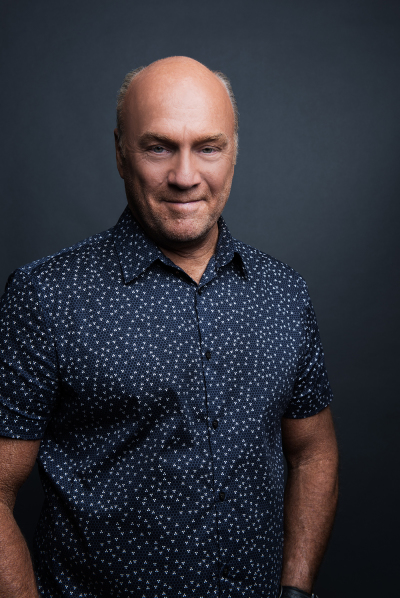The Bible heroes who fell forward

The New Testament book of Hebrews includes a collection of great heroes of the faith, men and women whom God used and blessed. I find that interesting, because those people messed up. They weren’t perfect examples.
But the funny thing is that chapter 11 of Hebrews mentions only their victories and not their mistakes. That is because God sees what we will become, not necessarily who we are.
In fact, a lot of people we read about in the Bible messed up. Abraham, the father of faith and of the Jewish people, lied about his wife twice. His son Isaac did the same thing. Sarah, Abraham’s wife, laughed at the promise of God and then denied that she laughed.
Jacob lied and connived. Noah got drunk. Samson was immoral. Gideon was fearful. Rahab was a prostitute. David had an affair and then had someone murdered to cover it up. Elijah was deeply depressed and didn’t want to live. And Jonah ran from God.
The disciples fell asleep when they should have been praying, and Simon Peter openly denied the Lord.
Then there was Moses, who killed a guy.
The historian Josephus believed that Moses was being groomed to become the next Pharaoh. As the adopted son of Pharaoh’s daughter, he wore royal robes and ate the finest food in the world. He had everything. He was the prince of Egypt.
But underneath those royal robes beat the heart of a true believer and a real Hebrew.
Moses was a reluctant leader. He didn’t want the job, but he got it. And when he was called to do something, he did it. As a result, he discovered that God was more than enough for him. He knew the Lord was bigger than the problems he faced.
The Bible tells us that Moses “chose to share the oppression of God’s people instead of enjoying the fleeting pleasures of sin” (Hebrews 11:25 NLT).
Moses understood that God’s worst was better than the world’s best.
You, too, may take God’s worst. But you’ll also get God’s best: purpose, meaning in life, the joy of the Lord and the guaranteed hope that you’ll go to heaven when you die.
But with the world, it’s a bad deal times two. That’s called a lose-lose proposition. You’ll have the short-lived pleasures, of course. But afterward those pleasures have consequences. You’ll have to face the repercussions of your actions, your sins and your behavior. And the Bible says that ultimately there’s a final judgment when nonbelievers will stand before God.
Moses knew his people were suffering, and he just couldn’t live with that. Therefore, he decided to take action. Moses had the right idea, but he went about it in the wrong way. His timing was way off.
Yet despite his flaws, despite his shortcomings, the Bible calls him “Moses the man of God.” What else can be said?
Yes, Moses failed, but he failed forward. That simply means that he learned from his mistakes. And we need to do the same.
Some people just keep doing the same things over and over again. They make the same mistakes, fall into the same cycle of sin, struggle with the same addictions, and it just goes on and on and on.
Years become decades, and in many ways their lives become defined by those things. Doing the same thing again and again while you’re expecting different results is the definition of insanity.
On the other hand, if you make a mistake or do something wrong but own it and learn from it, that is a well-learned lesson. That is failing forward.
Now we all fail in life. We all have lapses. We all get tempted. We all face trials. We’re not alone in the struggles of life.
Like many of us, Johnny Cash had his ups and downs and his highs and lows. I’ve always been fascinated by the Man in Black, which is why I wrote the book Johnny Cash: The Redemption of an American Icon.
A misconception is that he went to prison. But he never went to prison; he went to jail. He sang in prisons, however. Even though he was a strong believer, he had his struggles in life.
Interestingly, because of his song “Folsom Prison Blues,” some people think he was worse than he actually was. They assume that he really shot a man in Reno, as the lyrics say, but he actually never did.
Johnny Cash wasn’t a murderer, but Moses was. Yet God used Moses to change the world.
Maybe you’ve said, “God could never use me. He could never work through me.”
The truth is that God loves broken people, and He can change them.
We see our flaws. We see our shortcomings. But God sees something different. He sees who we will be one day. We see a broken life, but He sees a life put back together and used for His glory.



























